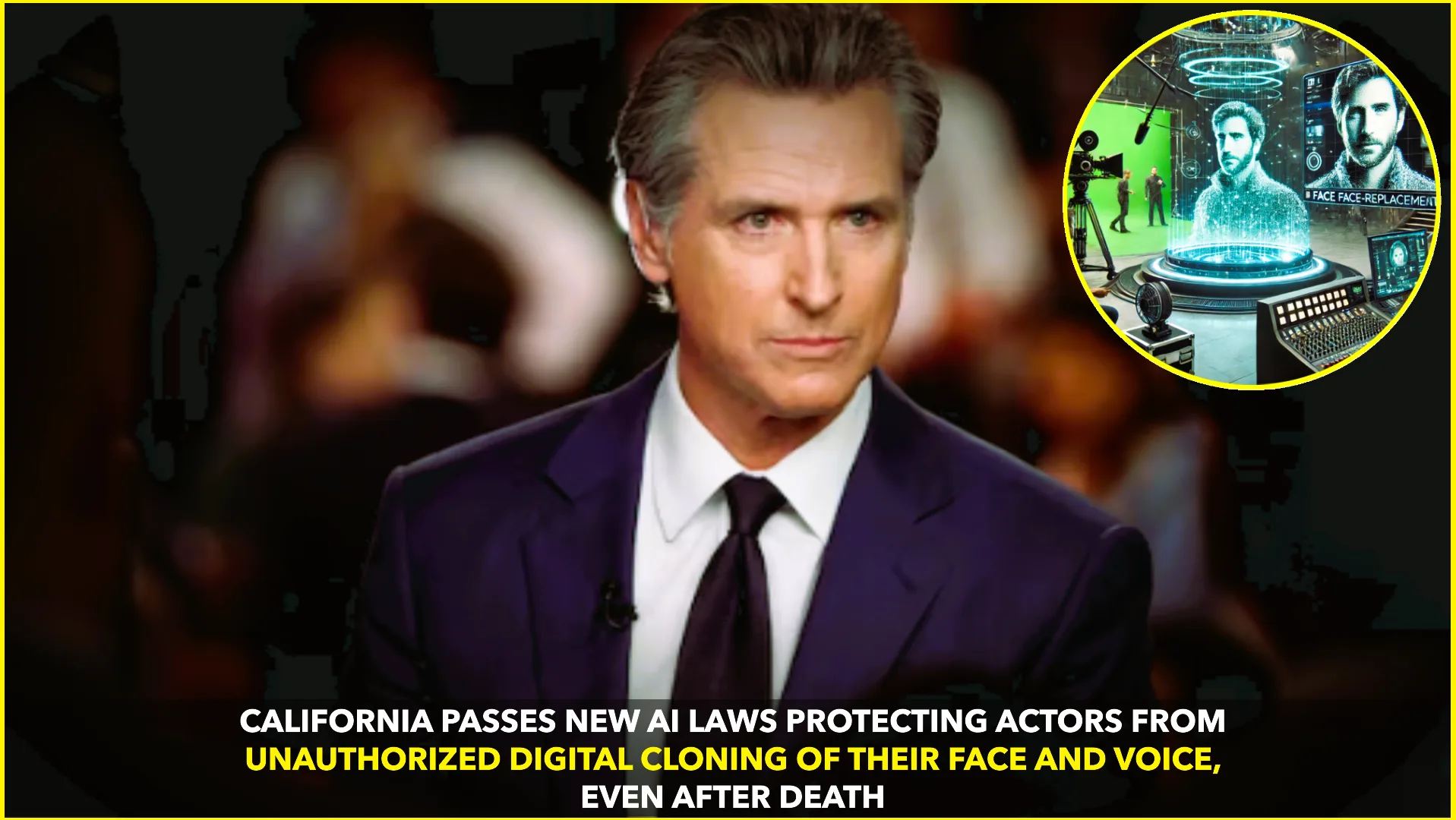In a groundbreaking move for the entertainment industry, California Governor Gavin Newsom has signed two major bills—AB 2602 and AB 1836—to protect actors and performers from being digitally replicated by artificial intelligence without their consent.
The new legislation makes it illegal to use someone’s face, voice, or likeness through AI without clear written permission. These rules apply not only to living performers but also to deceased actors, giving families the power to block the use of their loved ones’ likeness in films, games, or ads.
This development follows growing concerns raised during the SAG-AFTRA strike, where actors warned that studios could digitally clone them, effectively replacing real performers with AI-generated versions. The entertainment union called for laws to preserve the creative and professional rights of human actors.
Governor Newsom emphasized that this legislation is a necessary safeguard: “Technology must advance responsibly, and the rights of performers must remain protected.”
What the New Laws Say
AB 2602, aimed at protecting living performers, mandates that any contract involving an actor’s digital likeness must:
- Clearly describe how the AI-generated version will be used.
- Be negotiated with legal or union representation present for the performer.
- Not allow AI replicas to replace an actor’s actual work without specific consent.
- Apply to all new projects created on or after January 1, 2025.
Meanwhile, AB 1836 focuses on protecting the posthumous rights of deceased performers. Under this law:
- Any attempt to use a deceased person’s likeness or voice digitally for commercial purposes requires written authorization from their estate or family.
- Unauthorized use may result in penalties of at least $10,000 or actual damages, whichever is greater.
- Limited exceptions exist for uses in news, documentaries, or parody, which are considered matters of public interest.
Together, these laws create some of the strongest protections against unauthorized AI cloning anywhere in the world.
Why This Matters for Hollywood
California, home to Hollywood and most major film studios, has effectively set a precedent for the entire entertainment industry. These measures could become the blueprint for national or even international laws governing AI use in media.
For actors, this means greater control over their image and voice, ensuring they are not digitally manipulated, resurrected, or replaced without permission. For audiences, it promotes transparency about what’s real and what’s digitally created.
Industry analysts believe that studios will now need to revise contracts to include detailed AI clauses and potentially invest more in ethical technology practices.
Broader Impact Beyond Film
The reach of these laws extends beyond movies and television. They will also apply to video games, advertising, virtual reality projects, and social media content, where AI replicas of public figures are becoming increasingly common.
For example, digital recreations of famous singers or late movie stars have already sparked controversy over consent and compensation. Now, California law ensures that such practices require explicit legal permission.
Challenges and Future Outlook
While the legislation marks a big win for performers, questions remain about how enforcement will work, especially for content produced outside California but distributed within the state. Legal experts also point out that defining what qualifies as a “digital replica” might create gray areas for creative projects.
Still, these laws represent a critical first step in balancing innovation with ethics. They aim to protect creative professionals from exploitation while allowing AI to be used responsibly in filmmaking and digital media.
Conclusion
California’s new laws—AB 2602 and AB 1836—send a clear message: creativity must remain human-centered. By demanding consent and transparency, the state has set a global example of how governments can act swiftly to prevent misuse of AI in art and entertainment.
As AI continues to reshape the creative industries, this legislation ensures that technology serves people—not the other way around.
Source (APA citation):
Reuters. (2024, September 17). California governor signs legislation to protect entertainers from AI. Retrieved from https://www.reuters.com/technology/artificial-intelligence/california-governor-signs-legislation-protect-entertainers-ai-2024-09-17/










